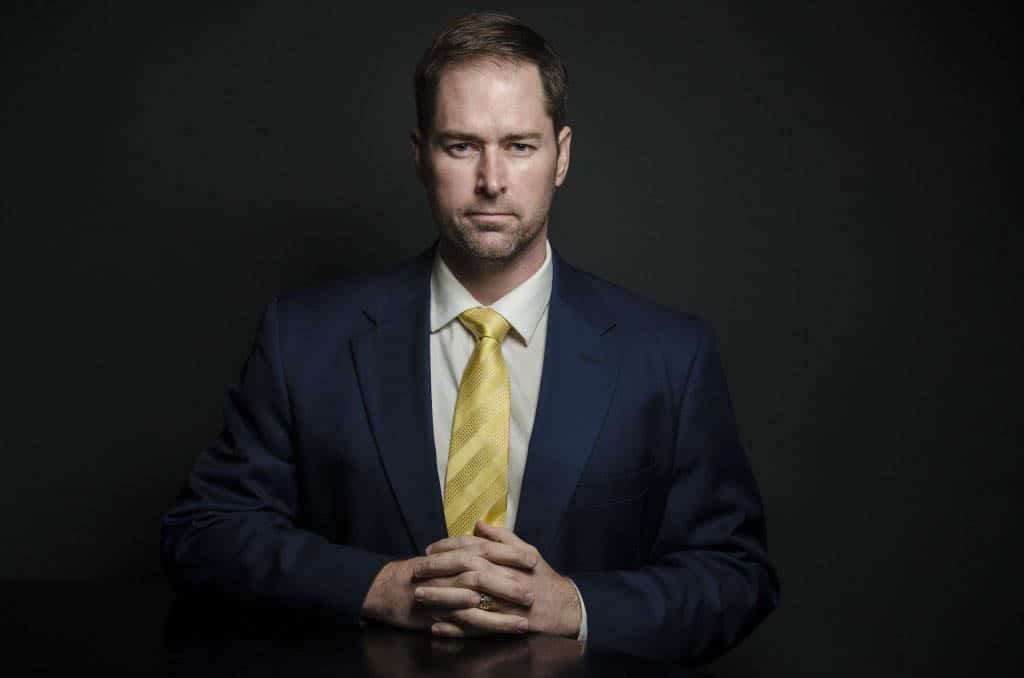Chapter 11 Bankruptcy Lawyers - Nick Davis Law
Dealing with Creditors in Chapter 11Nick Davis Law is determined to guide you through the complexities of negotiating with creditors in Chapter 11 bankruptcy, helping protect your assets and financial future.
Serving Montgomery, Harris, Fort Bend, Brazos, Grimes, Waller, Walker & Surrounding Counties
Dealing with Creditors in Chapter 11: Protect Your Business and Negotiate Effectively in The Woodlands, Katy, Houston, College Station, Texas

When a business or individual faces overwhelming debt, filing for Chapter 11 bankruptcy offers a lifeline. One of the most critical aspects of Chapter 11 is dealing with creditors—negotiating repayment terms, securing creditor approval, and ensuring the protection of assets throughout the process. Successfully navigating this phase requires careful planning, transparency, and skilled negotiation. At Nick Davis Law, we focus on securing the best possible outcomes, protecting our clients from the severe consequences of creditor actions.
Facing creditor pressure? Don’t delay—Contact Nick Davis Law today at (936) 262-7474 for a free consultation. Serving The Woodlands, Katy, and surrounding Texas counties.
Negotiating with Creditors in Chapter 11: Your Path to Debt Relief
Effective negotiations are the foundation of a successful Chapter 11 reorganization. Here’s how you can achieve the best terms for your business or personal finances.
-
Understanding Creditor Interests:
Creditors aim to recover as much of their debt as possible. The key to successful negotiations is understanding these interests and crafting a repayment plan that aligns with both your financial situation and creditor expectations. -
Presenting a Feasible Reorganization Plan:
Your reorganization plan must be realistic and sustainable. Transparency is crucial—showing creditors that your business or personal finances can support the proposed repayment terms. Nick Davis Law helps you develop a plan that creditors are likely to accept, ensuring long-term financial stability. -
Strategies for Debt Reduction:
Negotiating debt reduction may involve lowering interest rates, extending repayment periods, or even partial debt forgiveness. Our team works to secure the most favorable terms possible, protecting your future. -
Negotiation Tactics:
Success comes from building rapport, addressing creditor concerns, and offering realistic compromises. With Nick Davis Law by your side, you’ll have a trusted advocate leading these critical negotiations.
Explore advanced strategies for negotiating with creditors during Chapter 11 bankruptcy. Need support negotiating with your creditors? Contact Nick Davis Law at (936) 262-7474 for personalized legal advice.
Secured vs. Unsecured Creditors in Chapter 11: Navigating the Key Differences
Chapter 11 requires a strategic approach to managing both secured and unsecured creditors. Here’s how to balance their interests effectively.
- Secured vs. Unsecured Creditors:
Secured creditors have collateral, like property or equipment, to secure their loans, while unsecured creditors (credit card companies, trade creditors) don’t. The priority of payment differs significantly between the two, and so does the negotiation process. - Negotiating with Secured Creditors:
Secured creditors have priority in Chapter 11. They typically require assurances that their collateral remains protected or that repayment terms are met. Nick Davis Law helps structure repayment plans that safeguard assets while satisfying secured creditors. - Handling Unsecured Creditors:
Unsecured creditors are often more flexible. Negotiating reduced payments or extended repayment periods can help alleviate the financial burden. We specialize in creating plans that balance the needs of unsecured creditors while supporting your financial recovery.
Blurb for Dedicated Page:
Learn how to manage secured and unsecured creditors during Chapter 11 bankruptcy. [Link to “Secured vs. Unsecured Creditors” page]Need help managing secured and unsecured creditors? Contact Nick Davis Law at (936) 262-7474 for legal support.
Don’t wait until it’s too late to act. Contact Nick Davis Law Bankruptcy Relief Lawyers today for a free consultation at (936) 262-7474 and assistance in filing for Bankruptcy in The Woodlands, Houston, Katy, and College Station.
OVERVIEW OF CHAPTER 11
FILING FOR CHAPTER 11 BANKRUPTCY
CHAPTER 11 FOR BUSINESSES
CHAPTER 11 FOR INDIVIDUALS
DEVELOPING A CHAPTER 11 REORGANIZATION PLAN
DEALING WITH CREDITORS IN CHAPTER 11
MANAGING ASSETS AND OPERATIONS DURING CHAPTER 11
BANKRUPTCY LITIGATION
ADDITIONAL BANKRUPTCY PRACTICE AREAS
EXITING CHAPTER 11 BANKRUPTCY
ALTERNATIVES TO BANKRUPTCY
SPECIAL CHAPTER 11 TOPICS
Stopping Lawsuits and Collections During Chapter 11
Stopping Lawsuits and Collections During Chapter 11: Immediate Relief with the Automatic Stay
Filing for Chapter 11 bankruptcy activates an automatic stay, halting all creditor lawsuits and collections. Here’s how it protects you.
- The Automatic Stay:
When you file for Chapter 11, an automatic stay is triggered, which immediately stops creditors from pursuing lawsuits, collections, wage garnishments, or foreclosures. This stay provides crucial breathing room, allowing you to focus on developing your reorganization plan without the threat of aggressive creditor actions. - How It Works:
The automatic stay offers protection from a wide range of creditor activities. It prevents secured creditors from repossessing collateral and stops unsecured creditors from pursuing legal action. While the stay is in place, you have time to work out your financial restructuring without external pressure. - Violations of the Stay:
If a creditor continues collection efforts during the stay, Nick Davis Law will take swift action to enforce your rights and seek damages, if necessary.
Discover how the automatic stay protects you during Chapter 11 bankruptcy. Need immediate protection from creditor lawsuits and collections? Contact Nick Davis Law at (936) 262-7474 for legal assistance.
Creditor Committees in Chapter 11: What Role Do They Play?
Understanding Creditor Committees in Chapter 11: Advocating for Your Best Interests
Creditor committees play a vital role in Chapter 11 negotiations. Here’s how to ensure your plan gets the approval you need.
-
What is a Creditor Committee?
Creditor committees represent the interests of unsecured creditors in Chapter 11 cases. They are often formed to oversee negotiations, review financial information, and vote on the reorganization plan. Their approval is crucial for moving forward. -
How to Work with Creditor Committees:
Engaging with creditor committees requires a transparent and collaborative approach. Nick Davis Law helps present a compelling case to these committees, ensuring they understand your financial position and see the value in supporting your plan. -
Influence of Creditor Committees:
The decisions made by creditor committees have a significant impact on whether your reorganization plan is approved. Our team works to ensure that your plan meets the needs of creditors while protecting your long-term financial health.
Learn how to work effectively with creditor committees during Chapter 11 bankruptcy. Facing a creditor committee? Let Nick Davis Law guide you through the process. Contact us at (936) 262-7474.
FAQ
Frequently Asked Questions
What happens if a major creditor refuses to cooperate with my Chapter 11 plan?
If a key creditor refuses to cooperate, it doesn’t mean your plan is doomed. Under Chapter 11, you can propose a cramdown, which allows the court to approve your plan over the objection of certain creditors, provided the plan is fair and equitable. For secured creditors, you must ensure they receive at least the value of the collateral securing their claim. Unsecured creditors must be treated fairly based on available assets. Your attorney can help structure a plan that meets these standards and prepares for possible creditor objections.
What role does a creditor committee play in Chapter 11, and how does it impact negotiations?
In Chapter 11 cases, especially for businesses, a creditor committee may be formed to represent the interests of all unsecured creditors. The committee has a say in the reorganization plan and can negotiate the terms of repayment. While their goal is to ensure creditors receive the best possible outcome, they don’t have veto power over the plan. The committee can propose changes, but if negotiations stall, you can seek court approval through a cramdown. Having open lines of communication with the committee and proactively addressing their concerns can help expedite negotiations.
Can I negotiate with creditors before filing for Chapter 11 bankruptcy?
Yes, it’s often beneficial to engage in negotiations with creditors before filing for Chapter 11. Pre-bankruptcy negotiations can lead to more favorable terms or settlements, potentially avoiding bankruptcy altogether. If creditors see you taking proactive steps to address financial challenges, they may be more willing to agree to modified repayment terms. However, if informal negotiations fail, Chapter 11 provides a legal framework to restructure debts. Consulting with an attorney before negotiations can help you understand your leverage and ensure any agreements align with your overall financial strategy.
How are secured creditors treated differently from unsecured creditors in Chapter 11?
Secured creditors have collateral backing their loans, such as a mortgage or equipment lien, which gives them more leverage in Chapter 11 negotiations. They are entitled to receive at least the value of the collateral securing their claim, and if you wish to keep the asset, you must continue making payments or negotiate new terms. Unsecured creditors, on the other hand, typically receive less favorable treatment since they don’t have a claim on specific assets. The reorganization plan may propose reduced payments or longer repayment terms for unsecured creditors, and they must vote on whether to accept the plan.
Can I propose different repayment plans for different classes of creditors in Chapter 11?
Yes, Chapter 11 allows you to classify creditors into different groups, such as secured creditors, unsecured creditors, and priority creditors. Each class can receive different repayment terms based on the nature of their claim. For example, secured creditors may receive payments based on the value of their collateral, while unsecured creditors might receive partial payments over time. Priority creditors, such as those owed taxes or wages, must be paid in full. The classification of creditors must be reasonable, and each class gets a vote on the reorganization plan, with the court having the final say on its fairness.
Can a creditor demand that I sell assets as part of the Chapter 11 repayment plan?
Creditors can suggest asset sales to satisfy debts, but they cannot force you to sell assets unless the court agrees that it’s necessary for a fair repayment plan. In some cases, selling non-essential or underperforming assets may be a strategic decision to generate cash flow and satisfy creditors. However, if creditors push for asset liquidation that jeopardizes your business or personal financial recovery, you can counter their demands by proposing alternative ways to repay the debt, such as restructuring secured loans or extending repayment terms.
How do I deal with creditors who claim they have special priority in my Chapter 11 case?
Certain creditors, such as those owed taxes, child support, or wages, are classified as priority creditors and must be paid before other unsecured creditors. If a creditor claims special priority and you dispute their claim, the bankruptcy court will determine whether their debt qualifies for priority treatment. It’s important to review all creditor claims carefully and work with your attorney to challenge any unfounded priority claims. Paying a creditor more than they’re entitled to could negatively impact your overall reorganization plan and delay approval from the court.
What if a creditor tries to lift the automatic stay to pursue legal action?
Creditors can request that the court lift the automatic stay in certain circumstances, such as if they believe their collateral is at risk of being damaged or devalued. If a creditor files a motion to lift the stay, your attorney will have the opportunity to oppose the motion by demonstrating that you are adequately protecting their interests or that lifting the stay would harm your reorganization efforts. The court will weigh both sides before making a decision. It’s important to address these motions promptly to avoid losing the protection of the stay on crucial assets.
How can I ensure creditors trust my repayment plan and continue working with me post-bankruptcy?
Building trust with creditors is critical to a successful Chapter 11 process. Transparency and regular communication are key. Providing detailed financial records, projections, and a clear path to recovery can reassure creditors that your business or personal finances are on the road to stability. Additionally, meeting deadlines, keeping promises made in the plan, and making timely post-petition payments demonstrate your commitment to resolving your debts. Developing a reputation for reliability can make future negotiations smoother and may help maintain essential relationships post-bankruptcy.
Can creditors vote against my plan, and what happens if they do?
Creditors have the right to vote on your Chapter 11 reorganization plan, with each class of creditors voting separately. If a majority of a creditor class votes against the plan, it doesn’t necessarily mean the plan will fail. You can attempt to modify the plan to address their concerns, or you can pursue a cramdown, where the court confirms the plan despite creditor objections, as long as it’s fair and equitable. Secured creditors must receive at least the value of their collateral, while unsecured creditors must receive at least what they would have received in a Chapter 7 liquidation.
From the Blog
Recent Articles
Take Control of Your Financial Future Today
FLEXIBLE APPOINTMENTS | PAYMENT PLANS
At Nick Davis Law, we understand that bankruptcy is a complex and emotional process. Whether you’re an individual facing overwhelming personal debt or a business looking to restructure, we’re determined to guide you through every step. Bankruptcy is not the end—it’s the beginning of a new, more secure financial future.
Get a Free Consultation Now
Contact Nick Davis Law, serving The Woodlands, Katy, Houston, College Station and surrounding cities and counties. Take control of your financial future today—call us at (936) 262-7474. Our Montgomery, Harris, Fort Bend, Walker, Brazos, Grimes, Waller County Bankruptcy Lawyers regularly offer After-Hour & Weekend Phone and Virtual Consults and Payment Plans.
Contact us
Nick Davis Law
26418 Oak Ridge Dr.
The Woodlands, TX 77380
(936) 262-7474
The Woodlands, Texas
26418 Oak Ridge Dr.
The Woodlands, TX 77380
(936) 262-7474
Appointments Only
Bryan | College Station, Texas
750 William D. Fitch Pkwy, Ste 210
College Station, TX 778455
(979) 417-2220
Business Hours
Mon - Fri 8:00 am to 6:00 pm
Our Mission
The Trusted Family, Divorce, Bankruptcy, CPS, and Small Business Lawyers at Nick Davis Law are dedicated to providing the best and most efficient representation possible to our clients to achieve their goals quickly and cost effectively. Nick Davis Law maintain offices in The Woodlands, Katy, Texas and Bryan | College Station and serve all of Montgomery County, Brazos County, Walker County, Waller County, Grimes County, Washington County, Burleson County, San Jacinto County, Liberty County, Harris County, and surrounding counties.

 Nick Davis Law is a firm dedicated to helping individuals with all their family law needs and serves Montgomery, Harris, Waller, Grimes, Walker, Brazos, Washington, Burleson, Fort Bend and surrounding counties.
Nick Davis Law is a firm dedicated to helping individuals with all their family law needs and serves Montgomery, Harris, Waller, Grimes, Walker, Brazos, Washington, Burleson, Fort Bend and surrounding counties. 
